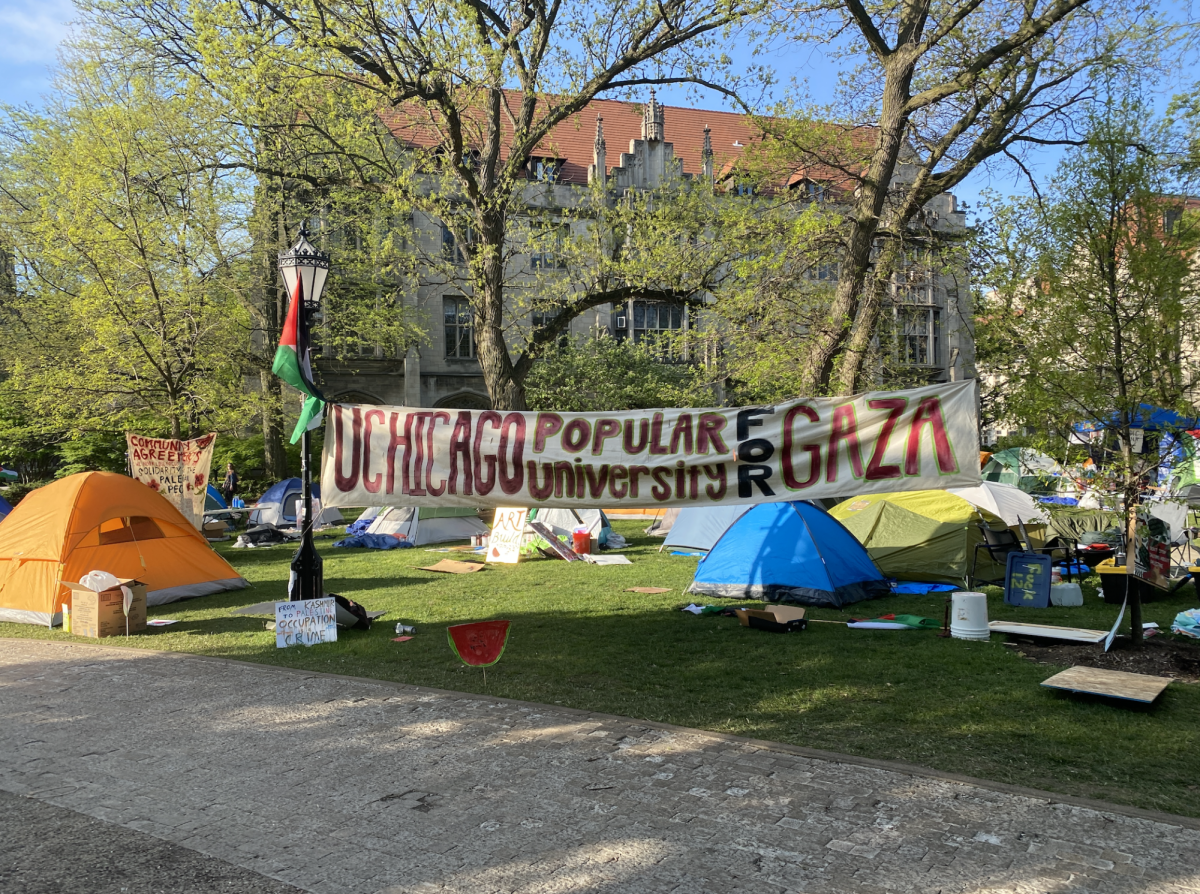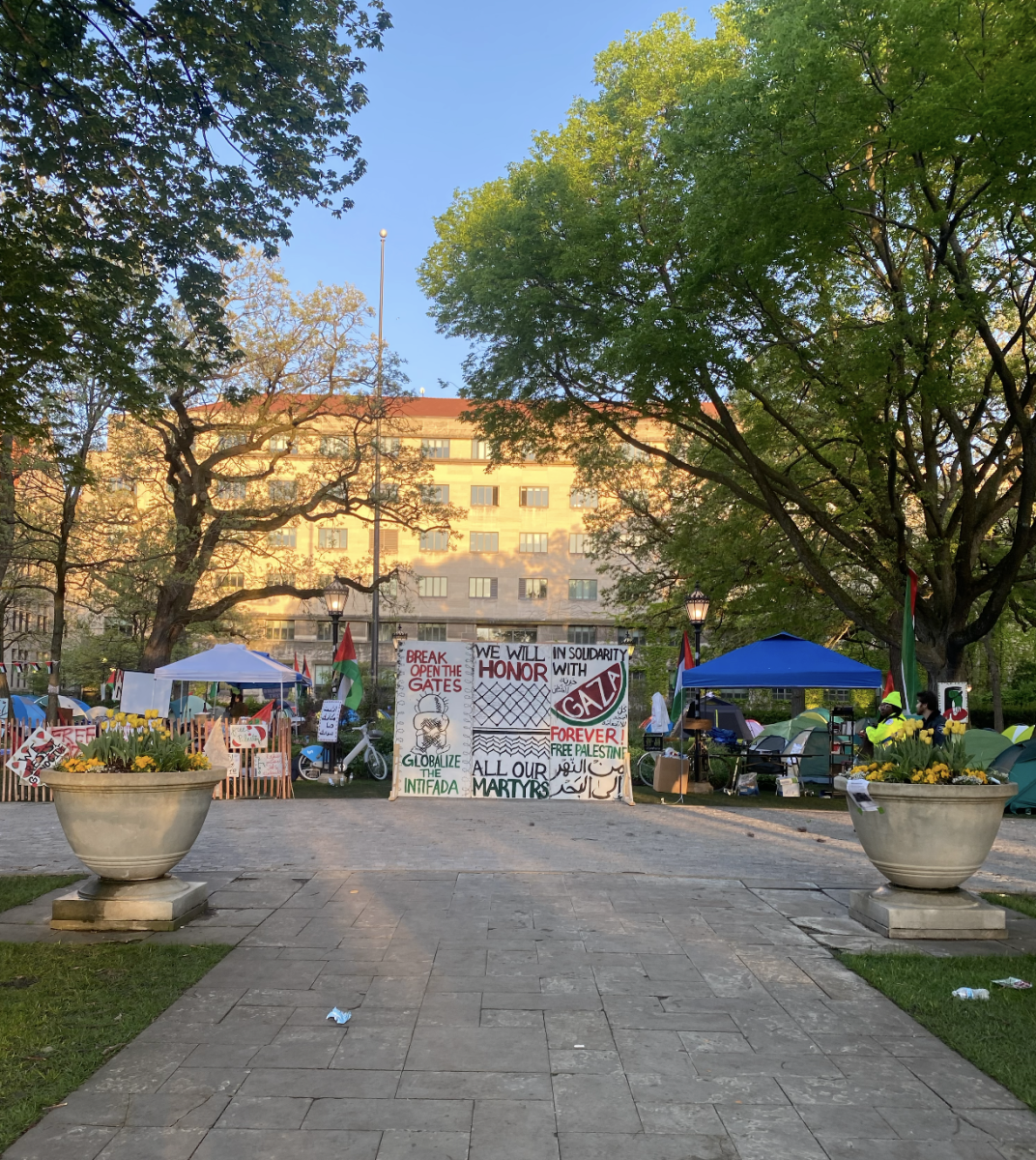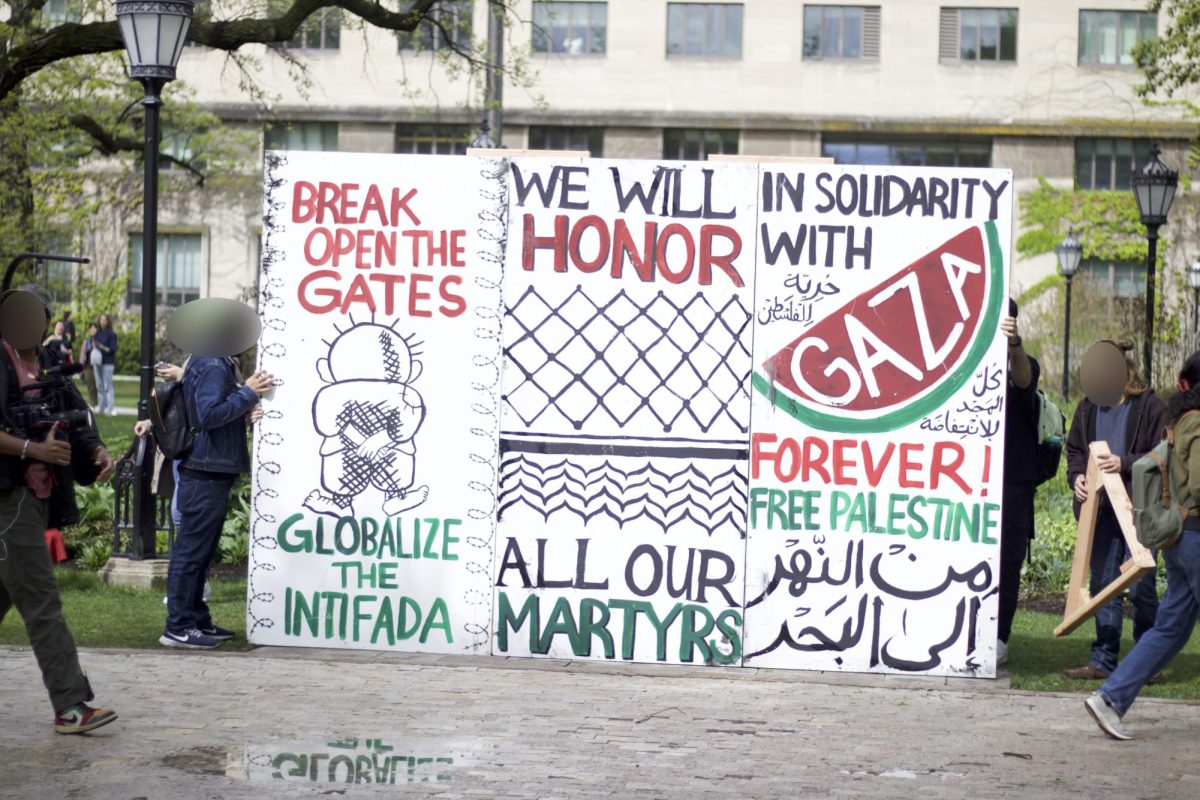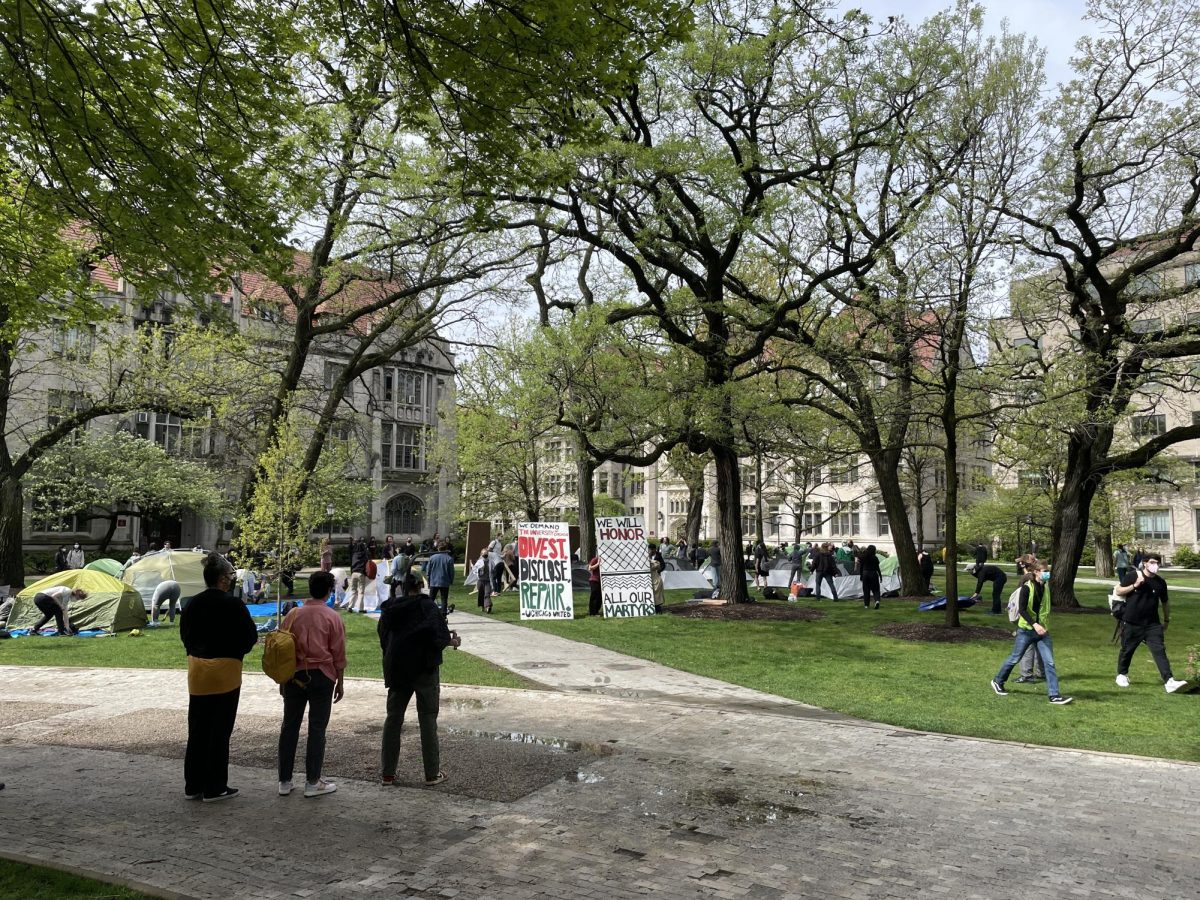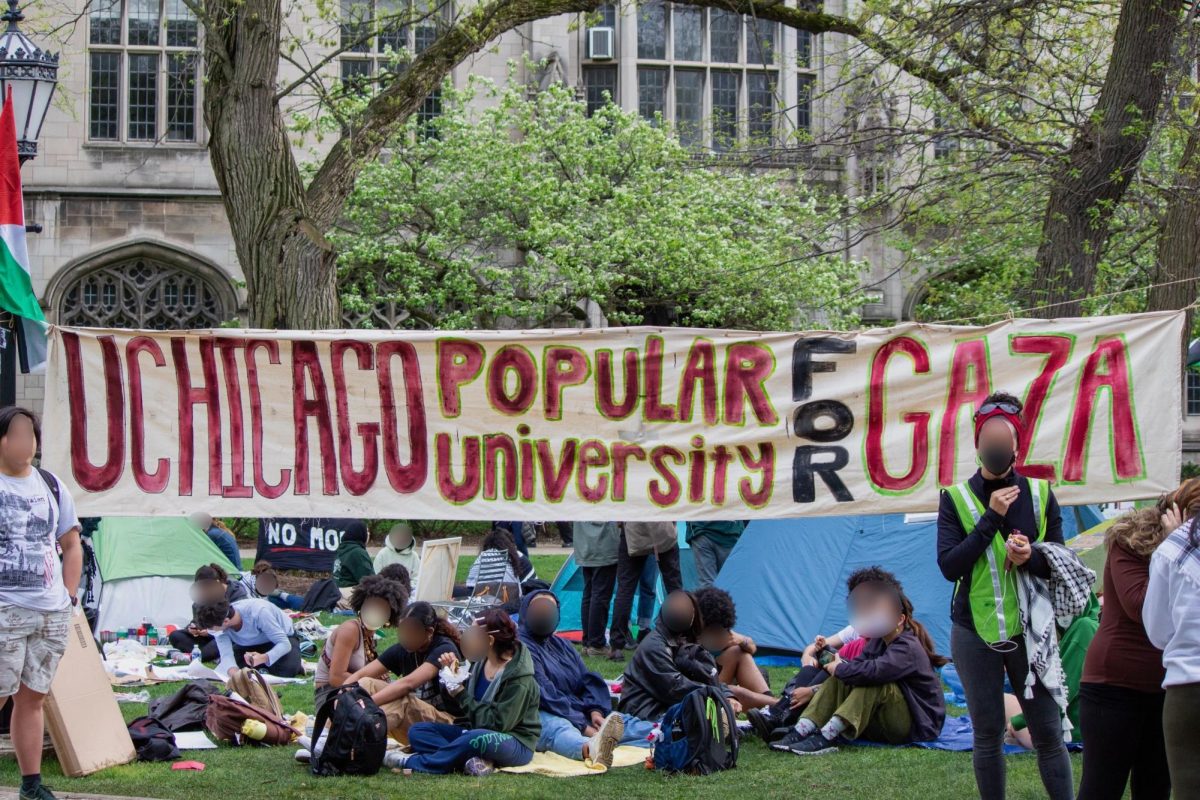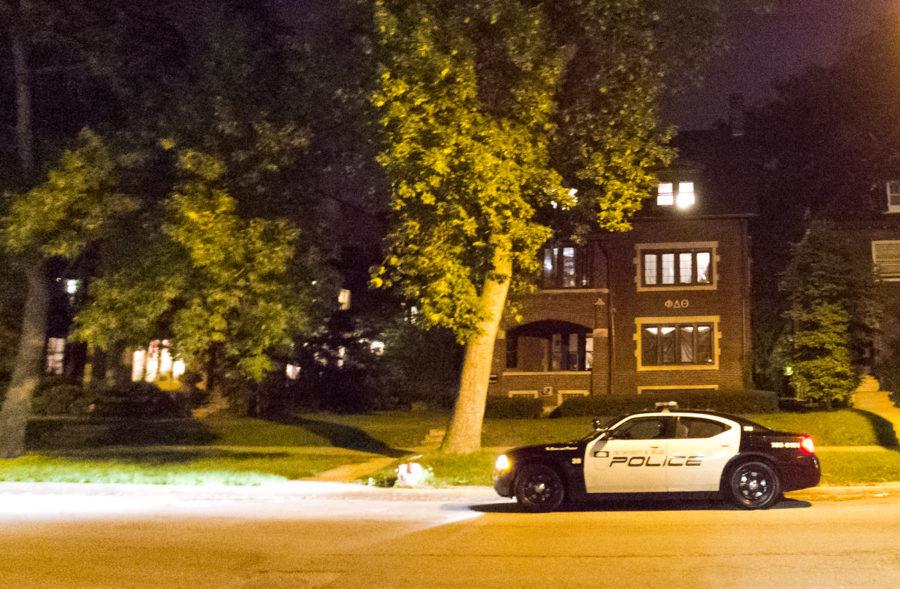When a graduate student known as Becky posted fliers across campus with the heading “Sex & Violence,” she hoped to find other rape survivors who would be interested in forming a support group.
Becky, who was raped while studying abroad as an undergraduate at another university, had gone through various U of C outlets to find resources. She posted the fliers last month in an effort to find people who shared her experience of feeling marginalized by the U of C’s slim offerings for those coping with the long-term repercussions of sexual assault.
In the fliers, Becky (a pseudonym) detailed her experience and condemned what she sees as the University’s failure to adequately address the needs of sexual assault victims in the community—in particular the Student Counseling and Resource Service (SCRS).
“The only resources available on campus that are specifically for survivors are aimed at prevention (which I find extremely insulting) and the sexual assault dean-on-call for people that have recently been assaulted,” the fliers read.
But according to Dana Regett, the service’s associate director, SCRS’s offerings have been able to adequately address the needs of students seeking care. The SCRS provides short-term, one-on-one counseling for one quarter and referrals to other professionals and organizations catering to the needs of sexual assault survivors.
Regett said SCRS is not only unequipped to offer a more comprehensive counseling program, but that there hasn’t been sufficient demand for any change in the first place, nor are plans in the works for adding long-term care. Regett is aware, however, of Becky’s campaign, and the two have been in contact.
“It would be great if we could provide ongoing, long-term counseling or group counseling for [sexual assault survivors or] a number of other groups who are worthy and in need of mental health services,” Regett said, but added there aren’t enough of these people to be able to offer counseling on a regular basis.
But Kevin Cherry, a second-year at the School of Social Service Administration and a representative of the student-led Working Group on Sexual Assault Policy, said others besides sexual assault victims want long-term counseling. “I think [students voicing such concerns] just goes to the general complaint that many people have with regards to the Student Counsel Center only offering short-term counseling,” he said.
According to Becky, the absence of both group therapy and long-term counseling directly available from the SCRS constitutes an “egregious lack of support.” She said that having a separate long-term counseling program is important because people who are coping with the extended effects of sexual assault experience symptoms different from those of immediate survivors.
The SCRS sees a number of sexual violence survivors (though statistics are unavailable), including both recent victims and those still coping with the long-term effects of childhood abuse. However, there is no program that caters to the survivors.The SCRS may also refer the student either to a Chicago-based organization unaffiliated with the University or to one of a number of local counselors who accept University health insurance.
Becky said she believed the practice of referring victims to other resources makes it difficult for the University to be aware of the victims’ progress in their treatment, and therefore unable to help them further.
The various outlets for victims of sexual violence on campus are intended to complement each other and walk the student through every step of the process. Programs like the RSVP or Common Sense (a general safety guidebook for students) are aimed at prevention, and the Sexual Assault Deans-on-Call is intended to help students navigate the University’s resources, while the SCRS is the only organization geared toward counseling.
But Becky said finding the appropriate program to address her needs was a labyrinthine task, and the offerings failed to fit her needs and only complicated the process.
First she went to the SCRS, which referred her to the RSVP, “under the impression that they have some sort of counseling,” only to learn that the RSVP doesn’t offer counseling. They encouraged her to talk to the sexual assault deans-on-call, who said she could call the local Chicago organization Rape Victim Advocates or go back to the SCRS. Becky also sought out the YWCA, which offers free short- and long-term counseling as well as group therapy, but she was told that nothing was available at the time.
The university Becky attended as an undergraduate, which she asked to remain undisclosed for privacy reasons, provided group- and long-term counseling for sexual assault survivors as part of a program called Campus Assault Resources and Education (CARE), which she holds as the example of centralized support to which the University should aspire.
Though she qualified that she is unsure of how widely held her complaints are, she has heard from other sexual assault victims who were similarly stymied by the University bureaucracy.
Becky received fewer responses to her fliers than she expected, but said at least a “handful” of survivors have contacted her. She got “a lot of feedback” from prospective volunteers, and notes that rape is often underreported due to its being a stigmatizing crime for the victim.
Regett maintained that, though there is little motivation for change, she would be open-minded “if there was a groundswell of interest in a longer-term group.”
“I can’t promise we could do anything,” Regett said. On the other hand, she said, “I’m hoping that we will get this conversation.”



